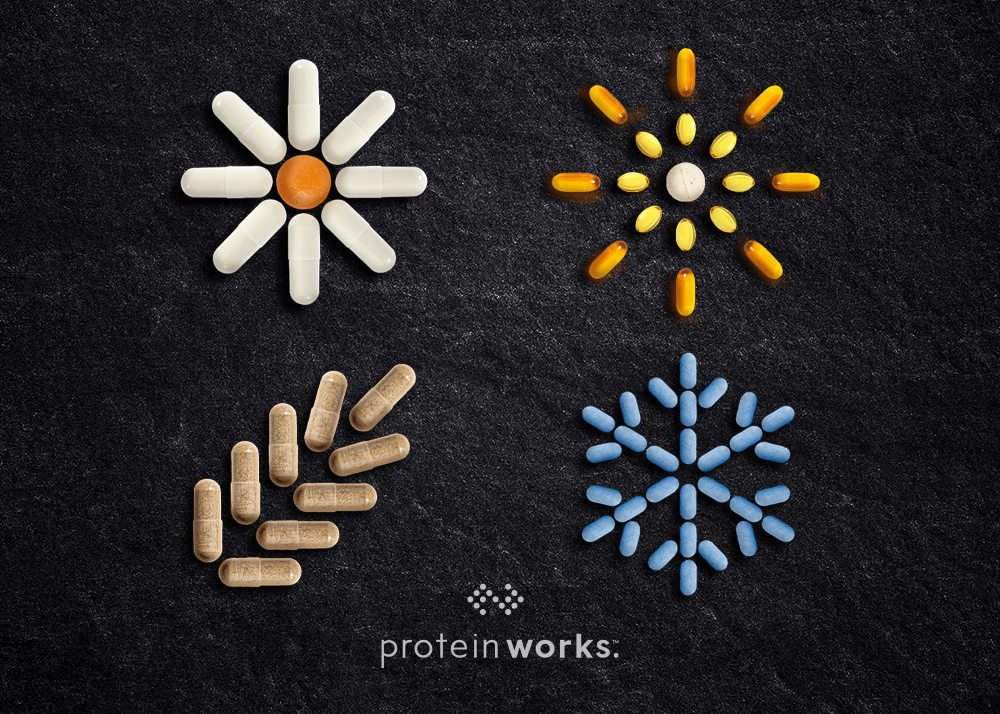Supplements have become an integral part of modern wellness routines, offering targeted support for our bodies throughout the year. With the abundance of information available online, it can be overwhelming to determine exactly what our bodies need as the seasons change. At PC, we advocate for a personalized approach to supplement intake, tailoring your regimen to meet the unique challenges presented by each season.
Here’s a comprehensive guide on how to align your supplement intake with the changing seasons to support overall health and well-being.
Spring: Handling seasonal transitions and allergies
Spring signifies renewal but also brings the onset of pollen season, triggering allergies for many individuals. Approximately 44% of adults in the UK experience allergies, with hay fever being a common ailment. While antihistamines are commonly used to manage symptoms, studies suggest that certain vitamins can help reduce allergies by supporting the immune system and reducing inflammation.
- March: Boost energy and metabolism with Vitamin B
In early spring, focus on overall well-being by incorporating Vitamin B6 and B12-rich foods like whole grains, lean meats, eggs, and legumes to boost energy levels and support metabolism. - April: Stabilize histamine release with quercetin
Introduce quercetin into your routine to stabilize mast cells and reduce histamine release, easing allergy symptoms. - May: Combat allergies with Vitamin C
Vitamin C acts as a natural antihistamine, reducing histamine production and inflammation. Include citrus fruits, strawberries, bell peppers, and broccoli in your diet for added support.Summer: Skin protection and energy maintenance
With higher temperatures and increased sun exposure, summer necessitates adjustments to your supplement regimen to protect your skin and maintain hydration.
- June: Protect skin with Vitamin E
Vitamin E safeguards the skin from UV damage and supports hydration. Incorporate almonds, sunflower seeds, spinach, and avocados into your diet for added protection. - July: Stay hydrated with electrolytes
Combat dehydration by consuming electrolyte-rich foods like coconut water, bananas, and leafy greens to support muscle function and maintain fluid balance. - August: Aid skin repair with Vitamin A
Vitamin A aids in skin repair and collagen production, crucial for recovery from sun damage. Include carrots, sweet potatoes, and leafy greens in your diet for skin nourishment.Stay tuned for the Autumn and Winter seasons in the next part of the article.


